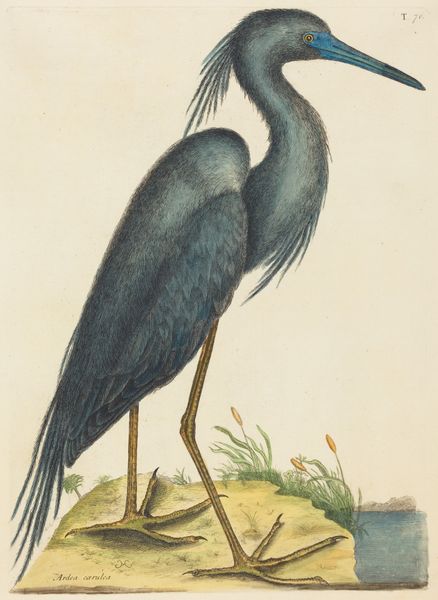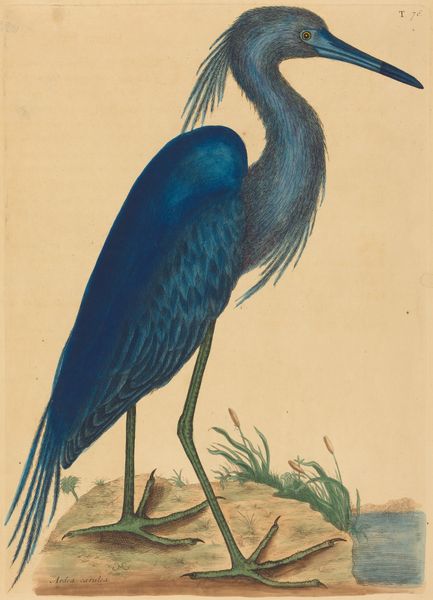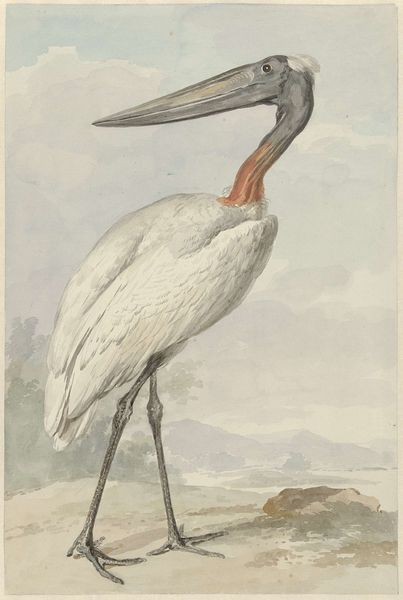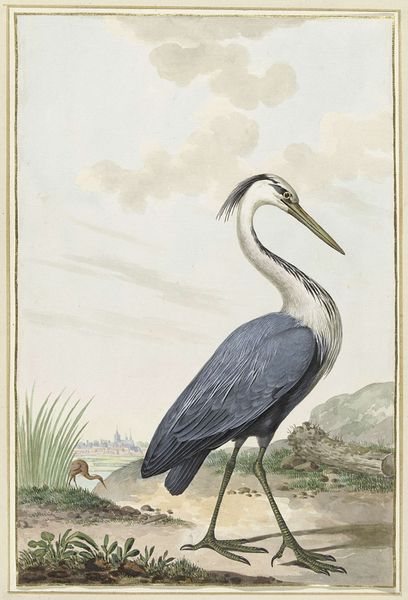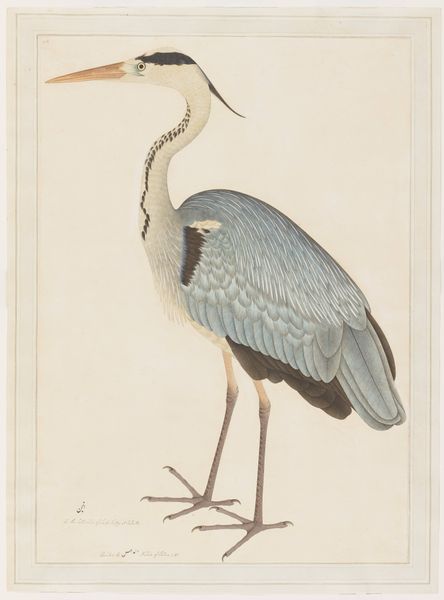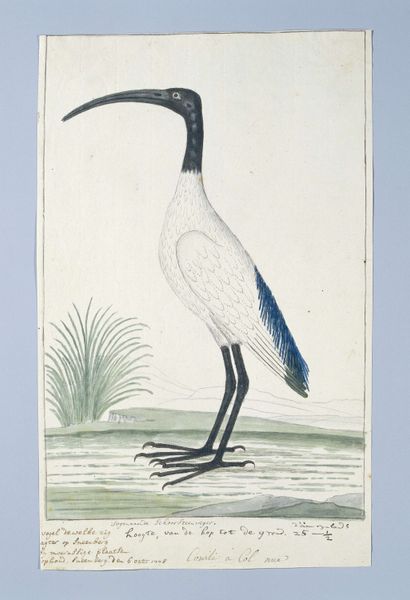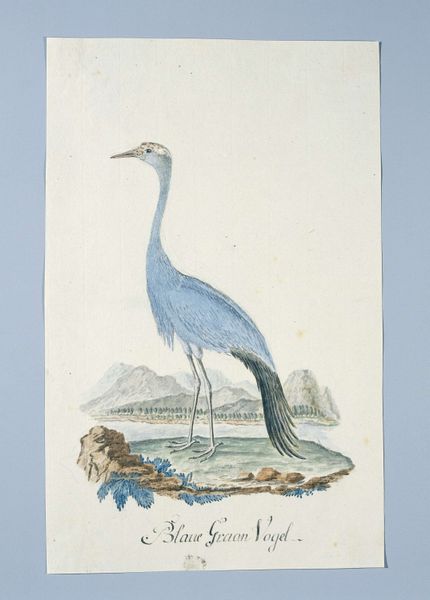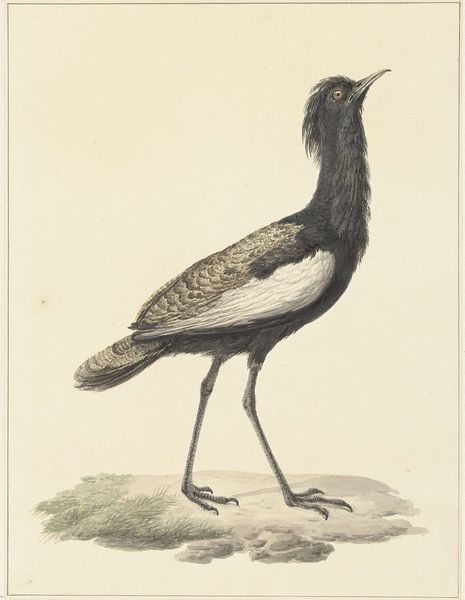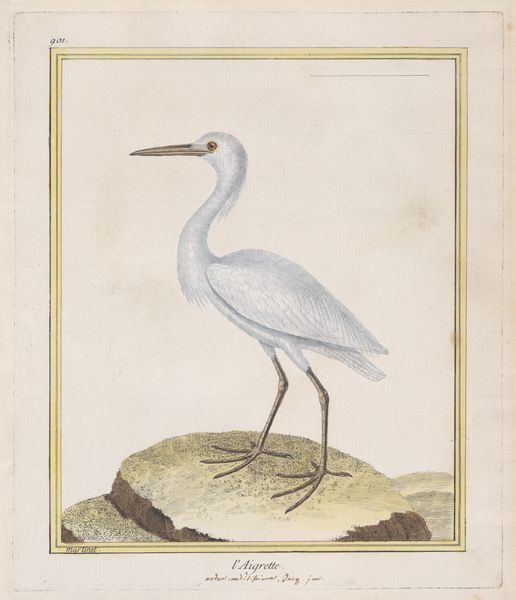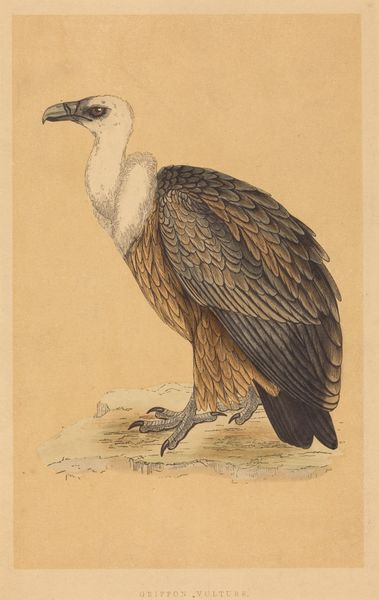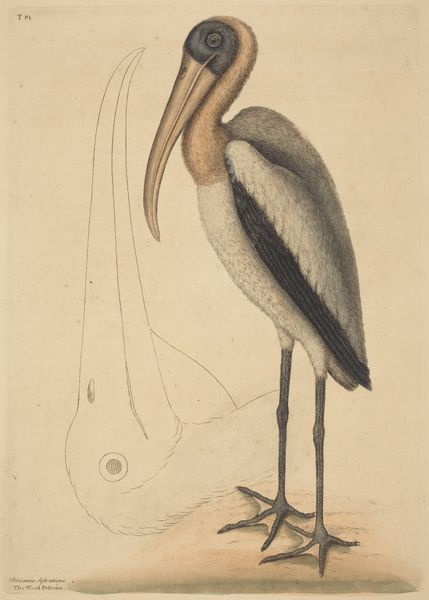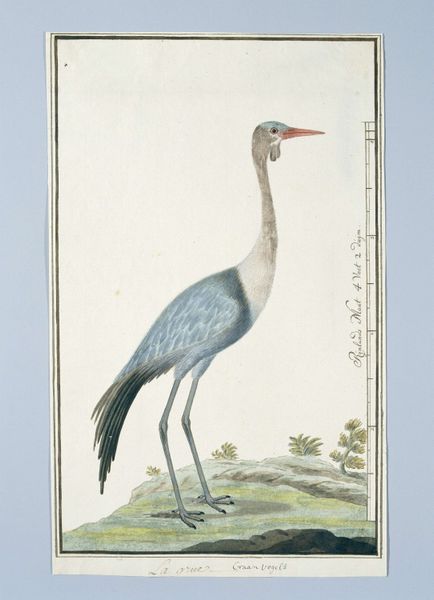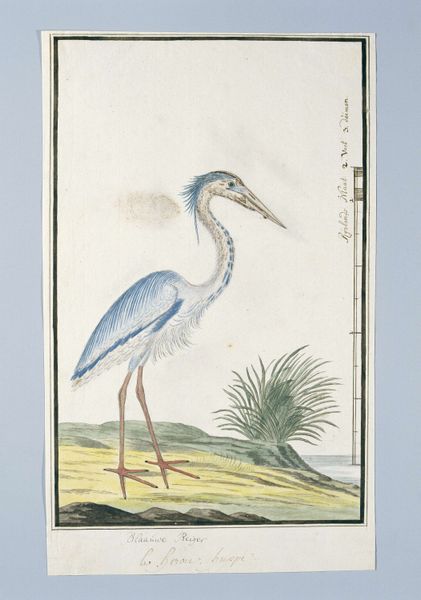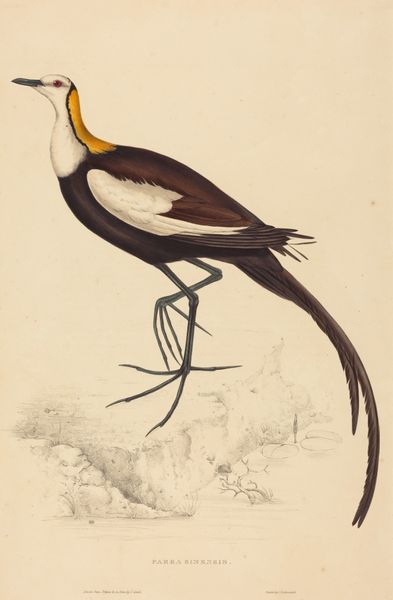
print, watercolor
#
portrait
# print
#
landscape
#
watercolor
#
watercolour illustration
#
academic-art
#
naturalism
#
realism
Dimensions: 14 x 10 in. (35.56 x 25.4 cm) (sheet)
Copyright: Public Domain
Editor: This is Mark Catesby's "Blue Heron," a watercolor and print from between 1731 and 1743. The bird itself is so elegantly rendered. How would you interpret this work? Curator: I see this not merely as a portrait of a heron, but as a reflection of colonial power dynamics intertwined with early natural history. Catesby's work contributes to the Linnaean project of cataloging the natural world, a project deeply implicated in asserting control over newly 'discovered' lands. Editor: So, the heron is more than just a heron? Curator: Precisely! It's about how European powers like England sought to classify and own knowledge of the Americas, its flora and fauna, including indigenous inhabitants. What do you notice about its pose and setting? Editor: It seems so deliberate, almost staged, in its posture and in its relationship to the landscape. Curator: That "staging" speaks volumes. The heron becomes a specimen, carefully presented for a European audience. The composition is about a type of "objective" scientific study and presentation that also implies an anthropocentric world view. Consider the lack of interaction or narrative. How does this differ from indigenous representations of the same animal? What does this say about the intended audience? Editor: I guess the focus becomes how knowledge is constructed and by whom. That adds layers to something that seemed simply like a naturalistic rendering. Curator: Exactly. It urges us to question the power dynamics embedded in supposedly neutral acts of observation and documentation. This work reveals how even scientific illustrations participated in the colonial project. Editor: That completely reshapes my understanding. I see the painting now not just as an image, but as an artifact that holds so many sociocultural aspects of its time. Curator: And that understanding allows us to reflect on how similar dynamics continue to shape our perceptions today.
Comments
No comments
Be the first to comment and join the conversation on the ultimate creative platform.
